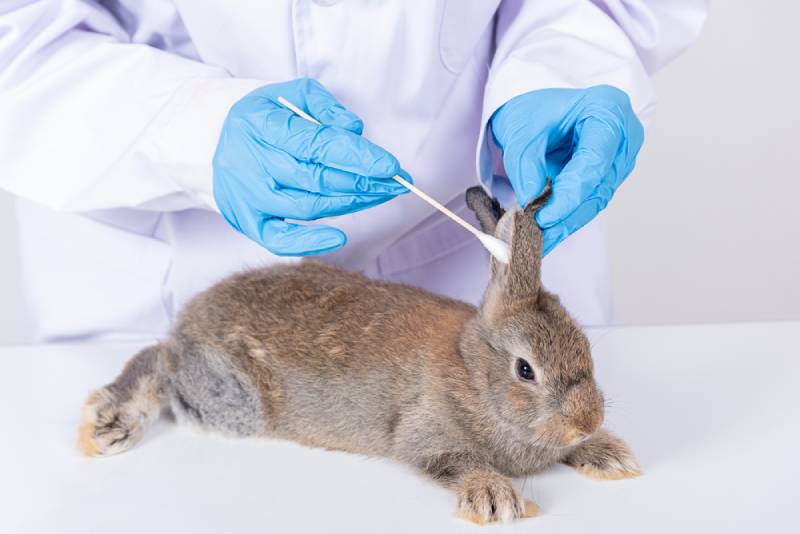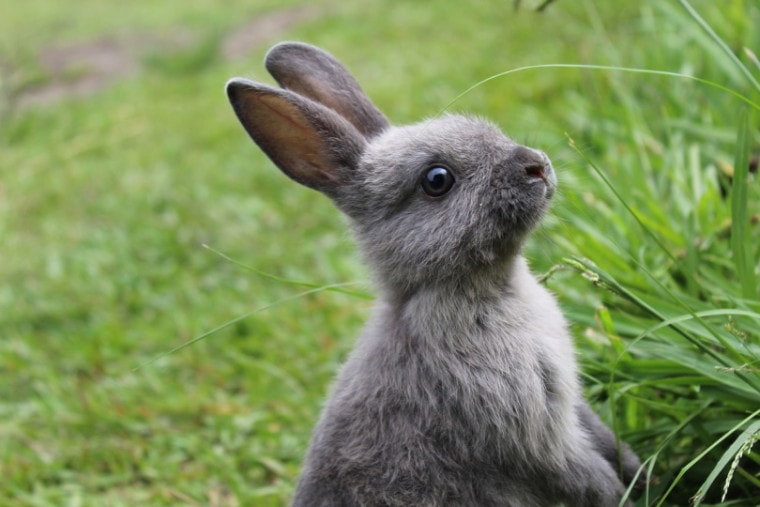
Rabbits are one of the most popular small exotics, with over 2 million bunnies kept as pets in the United States. Despite this, some persistent misinformation exists about pet rabbits and their care. Unfortunately, these misconceptions often wind up costing the rabbits themselves, when their owners buy them unprepared.
Thousands of bunnies are abandoned or surrendered to shelters each year, the third most frequently surrendered animal after cats and dogs. Before you let a cute bunny hop into your life, get the facts and get prepared! Here are 14 common myths and misconceptions about rabbits, examined and brought to light.
The 14 Rabbit Myths And Misconceptions
1. Rabbits Only Eat Carrots
We can probably blame Bugs Bunny for this one, but one of the most common myths about rabbits is that their primary food source is carrots.
Carrots actually aren’t that healthy for rabbits and should never be the only thing they eat. Hay should make up most of a pet rabbit’s daily diet, with a limited amount of pellets and leafy greens offered as well. Carrots are high in carbohydrates, and eating too many may upset the rabbit’s digestive balance.
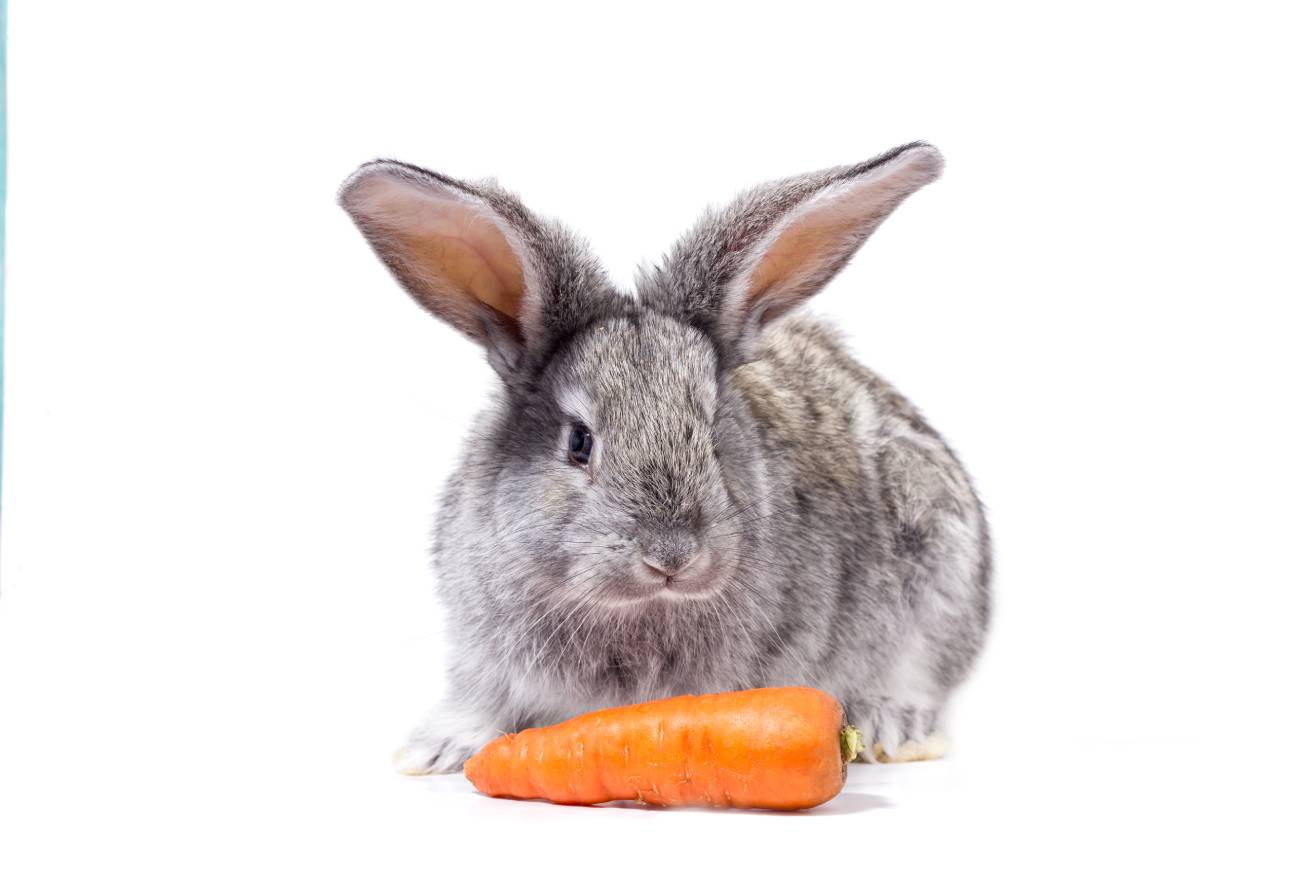
2. Rabbits Are Low-Maintenance Pets
Another harmful myth about rabbits is that they are low-maintenance and don’t require much care. This misconception often leads to a rabbit serving as a starter pet for kids or those who want to dip their toes into the waters of pet ownership with a minimal time commitment.
No, you don’t have to walk a rabbit multiple times a day in the rain, snow, or cold, but that doesn’t mean they are low maintenance. Rabbits need daily care and attention, including cage cleaning, fresh food and water, and time spent out of the cage exercising. They also need routine nail trims and may develop chronic health conditions that require medications or other advanced care.
3. Rabbits Don’t Need To Go To The Vet
Speaking of health care, another myth about rabbits is that they don’t need regular vet care. Most people know that cats and dogs require shots, flea preventatives, and other routine medical care. Those who fall for the myth that rabbits don’t need these may be tempted to get one just to save some dollars on vet care.
While indoor rabbits don’t need shots, they do require annual exams with a qualified exotics veterinarian. Spaying and neutering rabbits are recommended to keep them as healthy as possible. Rabbits can suffer various medical conditions, including overgrown teeth, parasite infestations, respiratory problems, diarrhea, GI stasis, bladder stones, infectious diseases, and cancer.
Regular vet exams can help catch many of these issues early. Your vet can also counsel you on proper nutrition and care of your bunny.
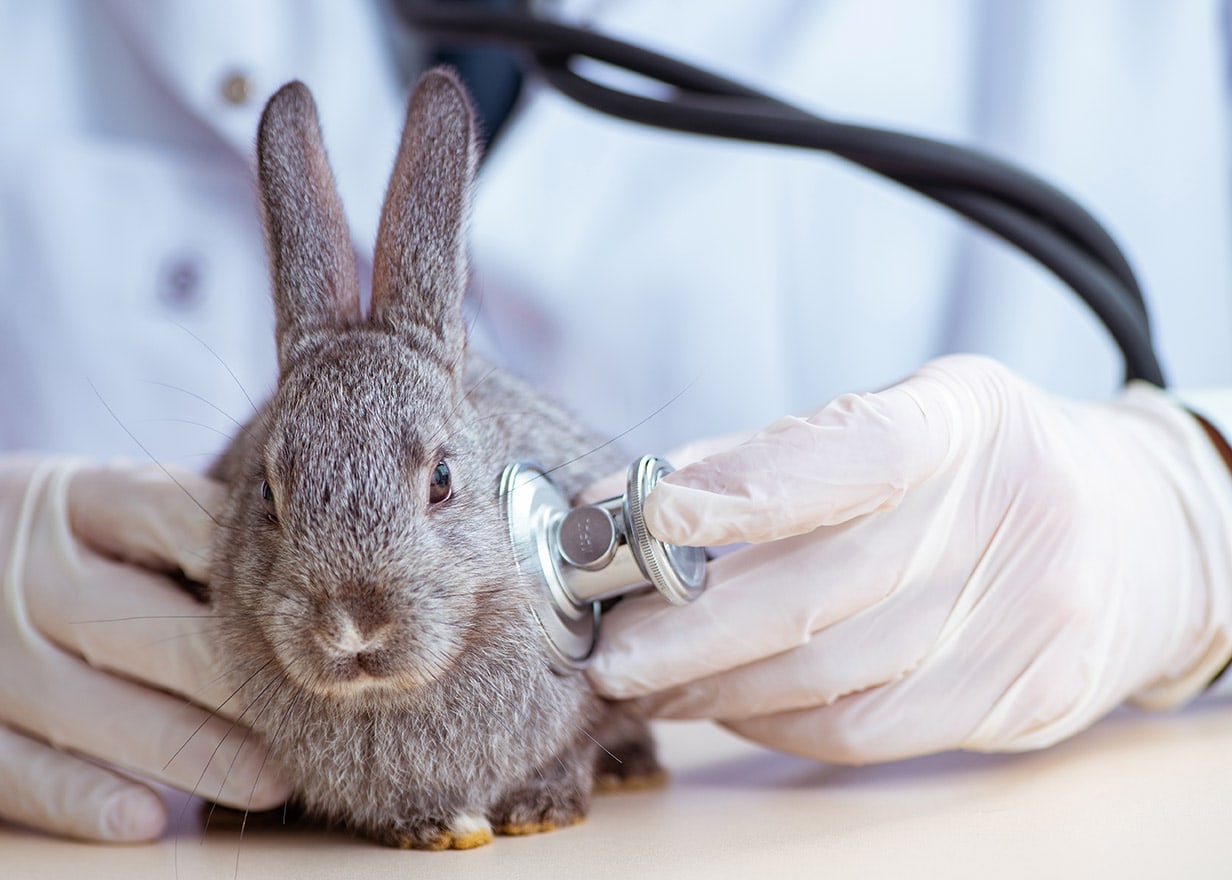
4. Rabbits Prefer To Live Outside
Wild rabbits live outside so why wouldn’t pet ones? Or so goes the myth, anyway. Many potential rabbit owners believe their rabbits would be the happiest living outside in a hutch rather than indoors with the family.
Rabbits are happiest and safest when they live indoors. Outdoor rabbits are susceptible to parasites, predators, and extreme temperatures that may shorten their lifespan. Rabbits are social creatures and will be unhappy without regular interactions with their human family. They also prefer to be warm rather than cold, like most mammals.
5. Rabbits Stink And Make a Mess
One reason rabbit owners might be tempted to house their pets outdoors is because of another misconception: that rabbits are messy and smelly pets. Owning any pet means accepting a certain amount of mess, but for some reason, people hold onto the myth that rabbits are particularly stinky and disorderly.
Young rabbits (like young humans) can be messy, yes. Unneutered rabbits may spray, which can be smelly, it’s true. However, adult rabbits—especially once spayed and neutered—keep themselves and their cage as clean as possible. Rabbits can even be litter-trained, which makes it even easier to keep them clean. Plus, their poop is a lot less messy or smelly compared to some other domestic pets.

6. Rabbits Like To Be Held
Because most rabbits look like adorable, living stuffed animals, it’s easy to assume that they would be as cuddly as one too. This thinking gives rise to the misconception that rabbits love to be held and snuggled.
Every rabbit is an individual. Some like to be held and some don’t. Young rabbits who receive lots of one-on-one attention may grow up more tolerant of handling. Naturally wary as prey animals, even rabbits who like being held may prefer to be the ones asking for attention rather than just allowing themselves to be picked up. It’s also important to learn the right way to pick up a rabbit to keep yourself and the bunny safe.
7. Rabbits Don’t Scratch or Bite
Rabbits have a reputation of being timid animals, scared of their own shadow, and unable to defend themselves. Because of this, many people have the misconception that pet rabbits won’t scratch or bite, even if handled improperly.
They may keep them hidden behind their cute, twitchy noses, but rabbits have teeth and know how to use them. A scared or aggressive rabbit is more than capable of nipping. Rabbit claws cause damage as well, especially if they aren’t trimmed properly. In addition, rabbits can pass diseases to humans via bites and scratches.

8. Rabbits Can Live In Small Cages
One major appeal of exotic pets versus dogs and cats is that they often don’t take up as much space. This has led to the misconception that rabbits, especially dwarf breeds, can live happily in small cages.
Have you checked out a rabbit’s hind legs? Strong and powerful, they’re designed for movement, not confinement. Rabbits are active animals, prone to becoming overweight. They’ll be unhappy and unhealthy if kept strictly in a cage. Many rabbit owners choose to go completely cage-less, allowing their bunnies free range of a room or even their entire house just like a dog or cat. Even if you don’t want to go that far, a caged rabbit needs at least an hour of freedom and exercise each day.
9. Rabbits Can Be Left Alone For Several Days
One major downside of pet ownership is the necessity of finding care for your animals anytime you want to stay away from home. Because rabbits don’t need to be walked, potential bunny owners may assume they can safely leave their pets alone for several days. But this, as you probably guessed, is another misconception.
We’ve already talked about the importance of daily care and interaction for pet rabbits, but there’s an even more vital reason bunnies need eyes on them every day. Rabbits can develop life-threatening medical conditions in as little as one day. Concerns that seem minor in other animals, like diarrhea, not pooping, or not eating for a day, require immediate attention in rabbits.
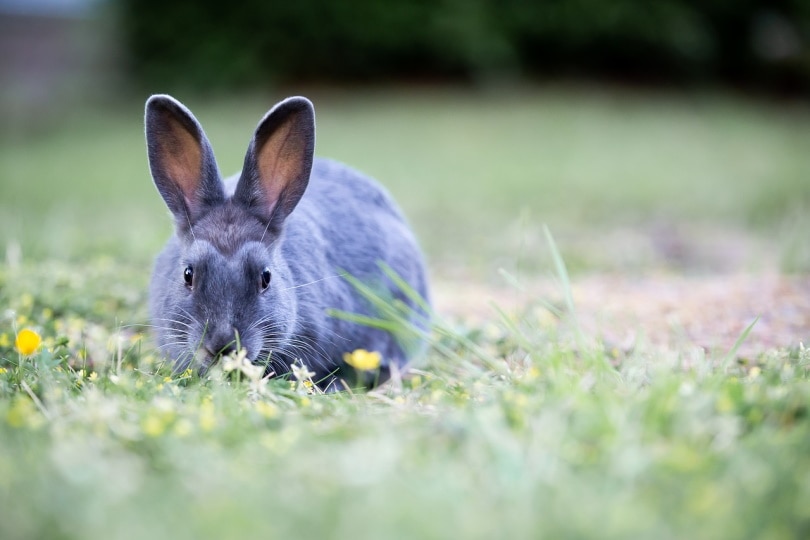
10. Rabbits Are a Short-Term Commitment
This may be one of the saddest misconceptions about rabbits and one which often leads to them becoming homeless. Many people purchase pet bunnies under the mistaken assumption that they will only live for a year or two. Aware that cats and dogs routinely live into their teenage years, they may opt for the pet they believe will be a short-term commitment only.
Rabbits don’t always live as long as cats, definitely not as long as many pet birds and reptiles. However, with proper care, many rabbits can live 7-10 years, as long as most giant breed dogs! Some pet rabbits are documented to have lived as long as 16 and 18 years. There’s nothing short-term about the commitment you make when you bring a rabbit home.
11. You Can’t Travel With a Rabbit
We’ve established that it isn’t safe to leave a rabbit on their own while you leave town. But what if you want to skip the pet sitter and take your rabbit with you? Many people love traveling with their dogs, while more and more cat owners are joining the trend. Rabbit owners are often under the misconception that they can’t travel with their pets.
Some airlines allow rabbits to fly in the cabin as a carry-on similar to cats and small dogs, though you should always call to confirm before booking a flight for you and your bunny. Calm, well-socialized rabbits can usually tolerate car trips, even if they don’t exactly enjoy them. You’ll need to allow more time for travel and plan carefully to ensure your rabbit gets breaks to eat and drink. Rabbits also get overheated easily, so make sure your vehicle stays cool if traveling during the summer.
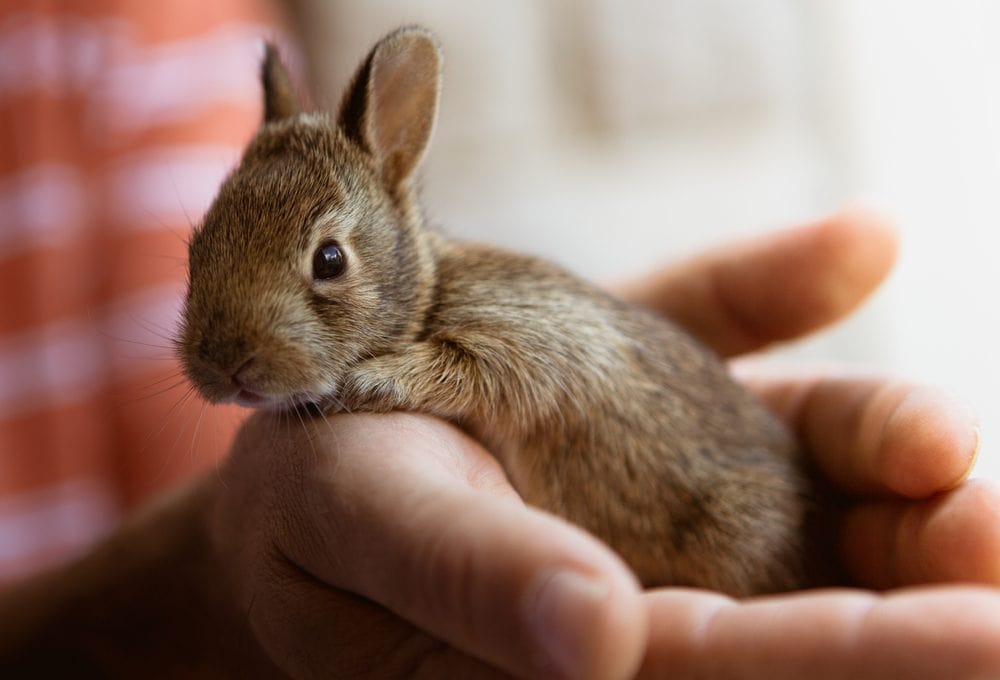
12. Rabbits Don’t Overeat
Another myth about rabbits is that they’ll only eat as much food as they need. Rabbit owners may assume they don’t need to measure the food they offer because their rabbits won’t overeat and become overweight.
Rabbits have much less self-control than you think and will happily consume more food than is good for them. Obesity is a common problem in pet bunnies, especially those who are fed too many pellets. A rabbit eating too much hay usually isn’t an issue, but vegetables and pellets need to be carefully measured. Rabbits should eat no more than 1/4 cup of pellets per day, half that if they’re less than 5 pounds. Limit vegetables to 2 cups a day for large rabbits and 1 cup for dwarf breeds.
13. Rabbits Can’t Live With Dogs And Cats
Because rabbits are naturally prey animals, many people assume that they can’t live in the same house with pets they would view as predators, like dogs and cats. While cats and bunnies may never become cuddle buddies, it’s a misconception that they can’t safely co-exist.
With proper socialization and supervision, many rabbits can tolerate and even enjoy the company of dogs and cats. These interactions may be more successful with young animals who are raised together. The personalities of both animals will play a role as well. Dogs and cats with a high prey drive should not be trusted. Rabbits should never interact with predator animals unsupervised, no matter how peaceful previous interactions have been.
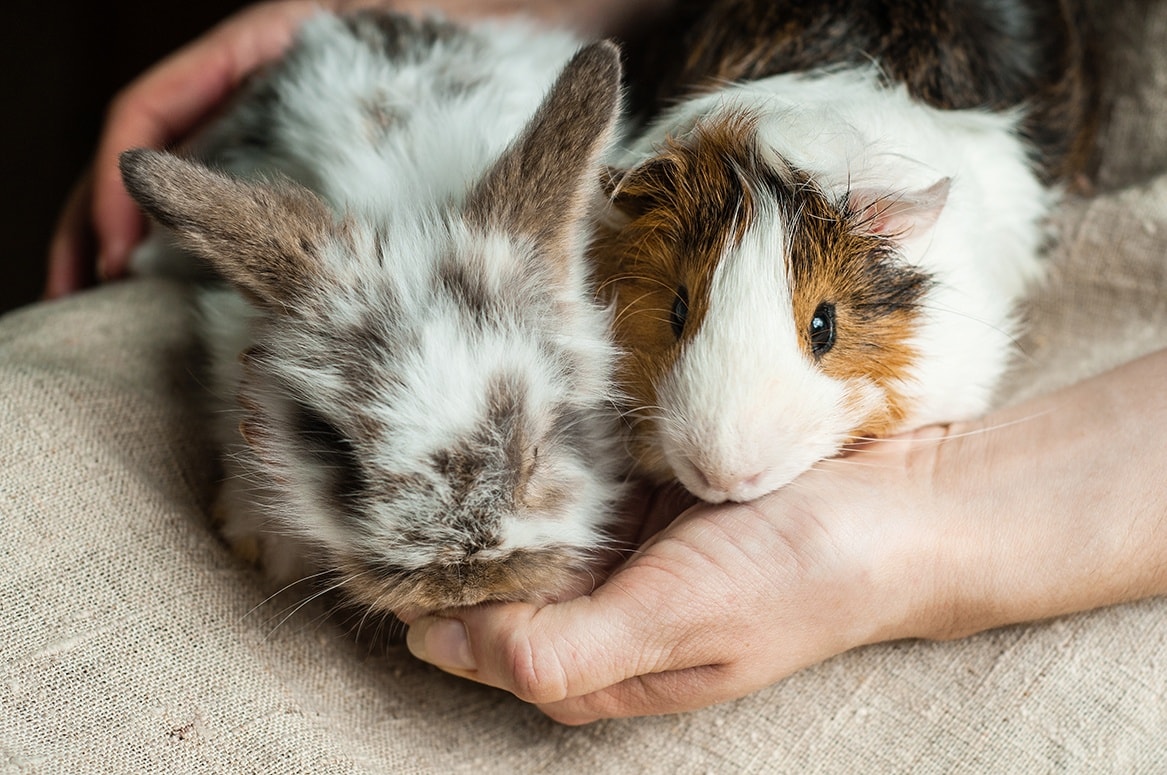
14. Rabbits Don’t Need To Be “Fixed” If They Live Alone
The reproductive skill of rabbits is well-known. As prey animals, the survival of a rabbit species hinges on their ability to produce more bunnies than are ultimately eaten by predators. Unless you want to be overrun with baby rabbits, it makes sense to spay and neuter opposite-sex pairs. However, it’s a misconception that there’s no benefit to doing the same for single bunnies.
We already discussed the fact that unneutered male rabbits often spray just like male cats. The resulting smell is just as unpleasant, too. Neutering male bunnies allows you to avoid or cut short (so to speak) this behavior. Female rabbits don’t spray, but they are prone to getting cancer of the uterus at a relatively young age. Spaying them eliminates that risk and can prolong a female bunny’s life.
 Conclusion
Conclusion
While rabbits can make fantastic pets who bring amusement and joy to their owners, you must do your research on these animals before you commit. As we’ve learned, there are many misconceptions surrounding rabbit ownership, and the bunnies are the ones who usually suffer for it. Don’t fall victim to an impulse buy of an adorable rabbit only to find you were unprepared for their long-term care.
You Might Also Be Interested In:
- How to Get Rabbit Pee Out of a Mattress: 4 Ideas and Tips
- How To Calm A Fearful Or Stressed Rabbit (18 Proven Methods)
Featured Image Credit: Mandz11, Pixabay




